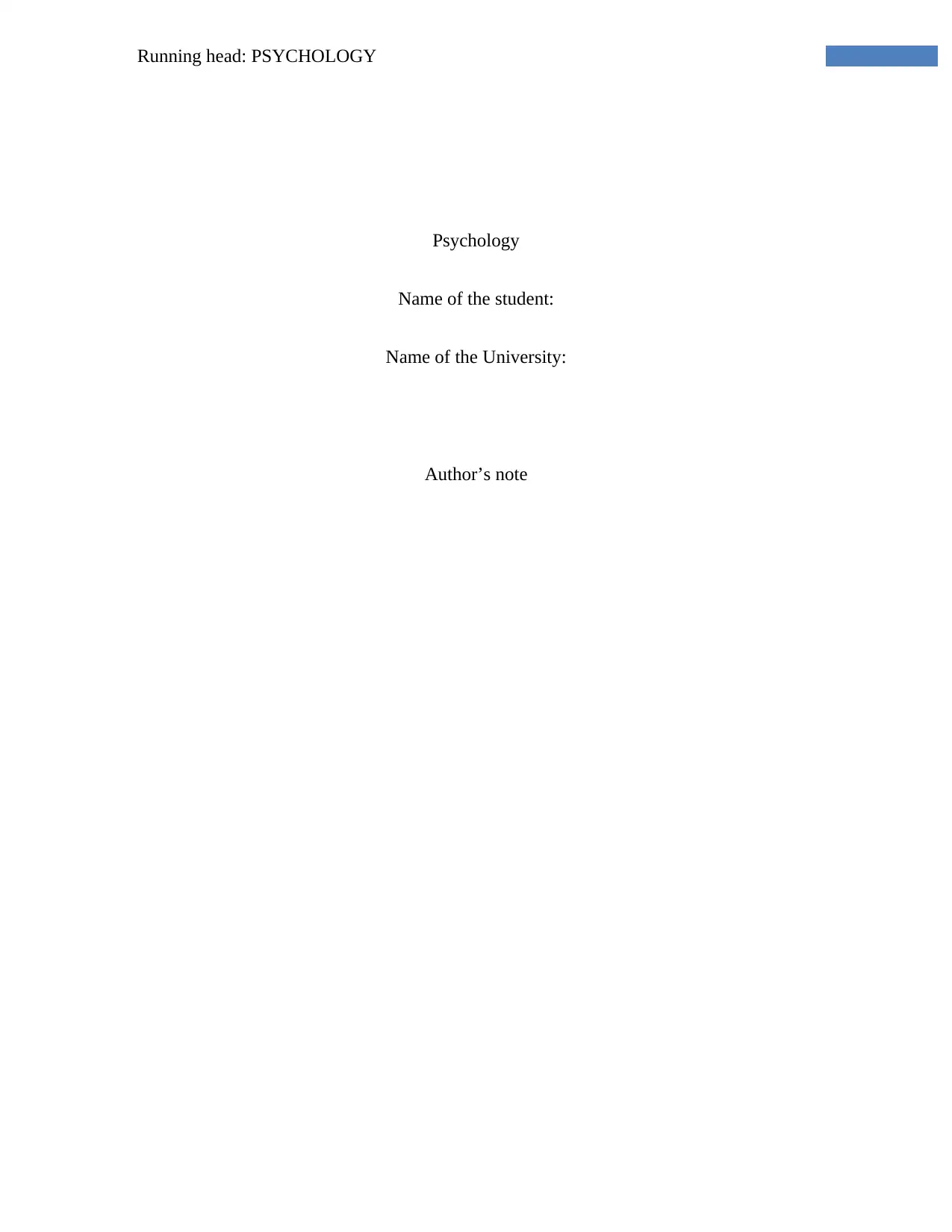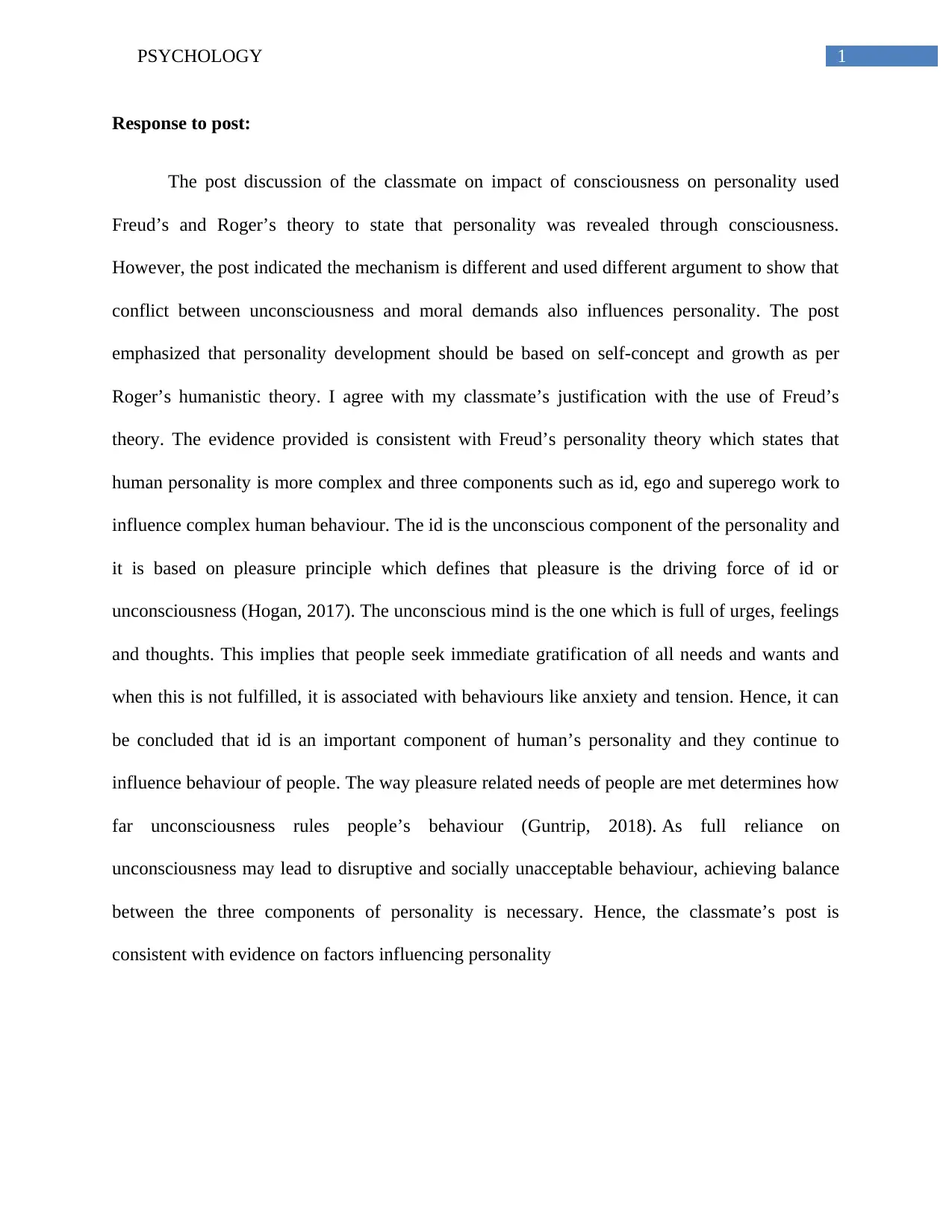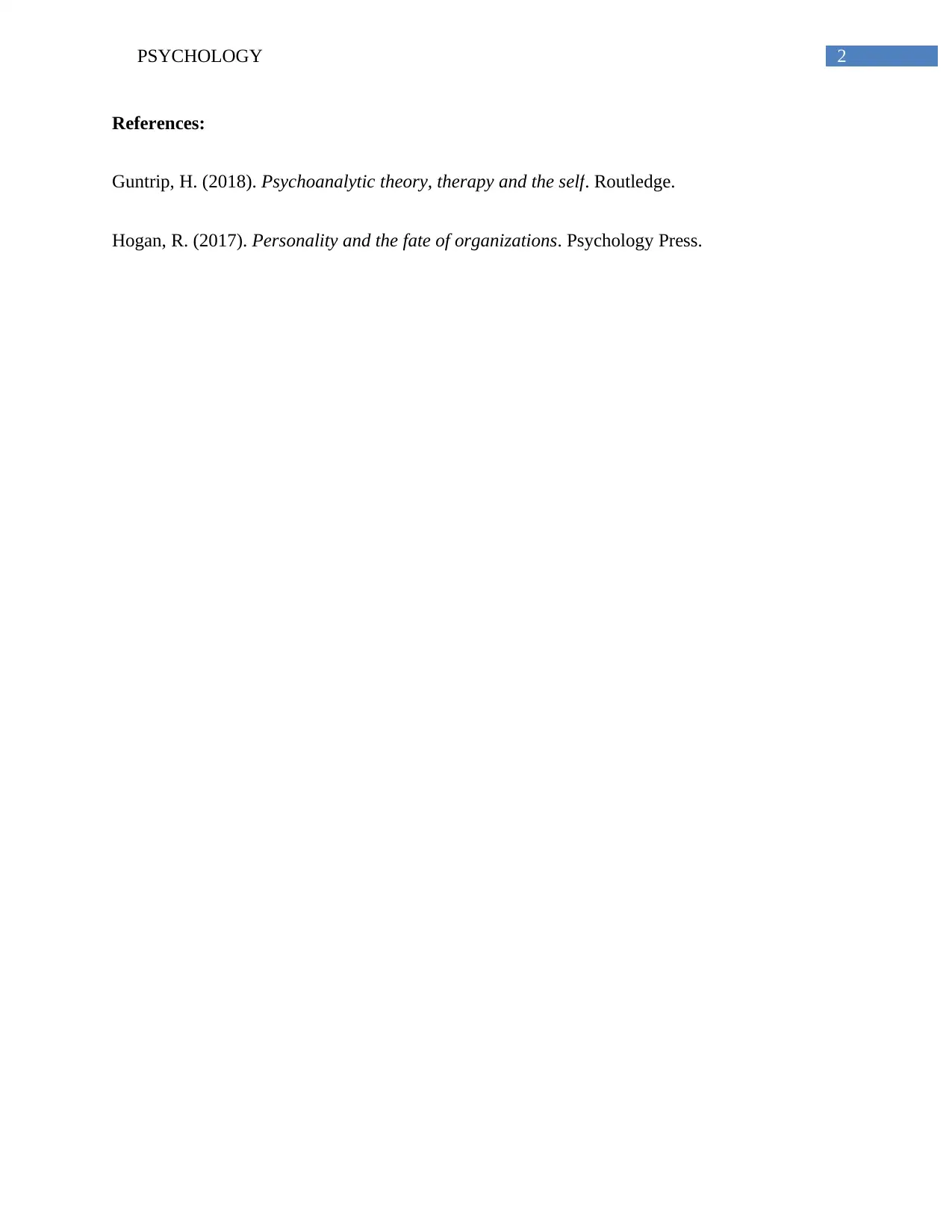Psychology: Comparing Freud and Rogers on Personality Theories
VerifiedAdded on 2023/04/23
|3
|362
|443
Discussion Board Post
AI Summary
This assignment presents a student's response to a post discussing the impact of consciousness on personality, drawing upon Freud's and Rogers' theories. The student agrees with the classmate's justification using Freud's theory, highlighting the id, ego, and superego components and their influence on human behavior. The discussion emphasizes the importance of balancing these components to avoid socially unacceptable behavior. The post references Freud's psychoanalytic theory, emphasizing the role of the unconscious mind and the pleasure principle in shaping personality and behavior, while also acknowledging Roger's humanistic perspective, which focuses on self-concept and personal growth. The student concludes that the classmate's post aligns with evidence regarding the factors influencing personality.
1 out of 3










![[object Object]](/_next/static/media/star-bottom.7253800d.svg)